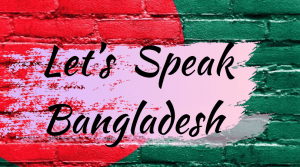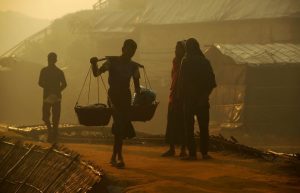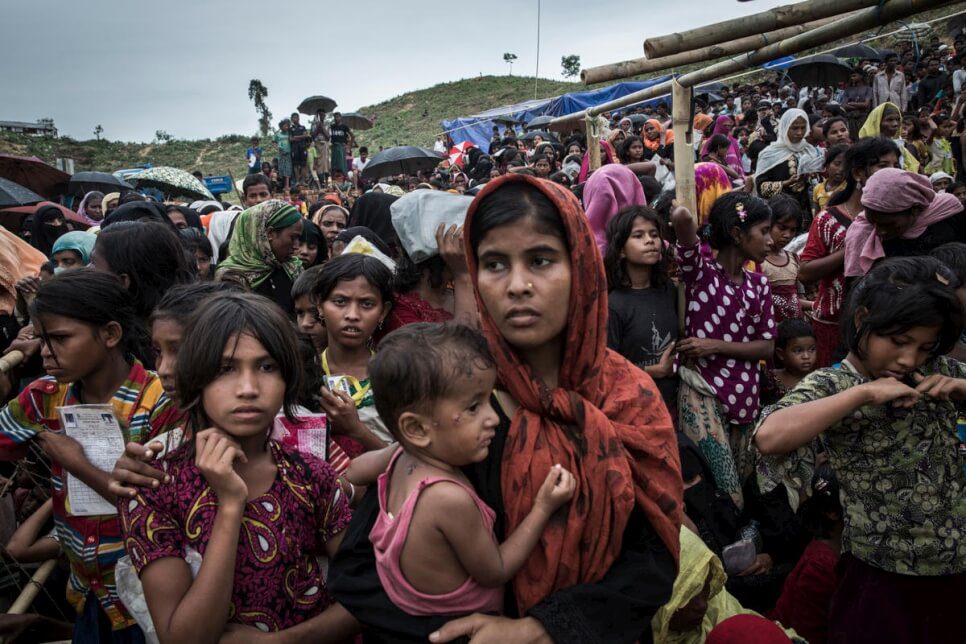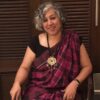Tabassum takes a hard look at the baseless statement of the State Minister of Culture, on the cultural hegemony by the Rohingya Refugees, a stateless people. An exclusive for Different Truths.
 It was a beautiful Thursday evening on November 7. One could feel the autumn and whispers of winter. The evening was filled with cultural aura. It was Dhaka Lit Festival 2019.
It was a beautiful Thursday evening on November 7. One could feel the autumn and whispers of winter. The evening was filled with cultural aura. It was Dhaka Lit Festival 2019.
Dhaka Lit Festival replaced the Hay Festival since few years. Now, it is organised by a group of people in Bangladesh. And sponsored by top sponsors. During the day, the general public gathers to buy books. They enjoy meeting. A sense of relief, in the boredom of life. With tea, snacks and chats the afternoons and evenings become lovely. The evening is for literary discussions. Literary personalities local and international join the sessions. They take live questions and answers.
Our organisers are not fools. Most of the seats are reserved for eminent cultural personalities, foreign dignitaries and intellectuals.
Our organisers are not fools. Most of the seats are reserved for eminent cultural personalities, foreign dignitaries and intellectuals. And yes, for corporate bosses. Do not underestimate the artistic prowess of these corporate people. Their minds don’t only roam around leadership, target group and profit, marketing, branding CSR, or PR.
They hardly miss the event and never forget to post pictures with cultural personalities from around the world. And, we always get the satisfaction that the program is inaugurated by our Cultural Minister, who is a Member of the Parliament and elected by us. He is our representative there.
Speaking as the Chief Guest on this year’s Dhaka Lit Festival, the State Minister of Culture, KM Khalid said, “The neighbour’s invasion of our literature and culture, especially, Myanmar’s Rohingya culture is infiltrating.” Perhaps our State Minister for Culture became quite emotional. Was it a gaffe? No! our Ministers don’t do gaffes like UK Prime Minister Boris Johnson!
Bangladesh is facing multifaceted problems regarding Rohingya refugees. Diplomatic, economical, socio-cultural, human trafficking, drug deals, etc. And countless Rohingya have become part of Bangladeshi nationals via fake identification cards
Bangladesh is facing multifaceted problems regarding Rohingya refugees. Diplomatic, economical, socio-cultural, human trafficking, drug deals, etc. And countless Rohingya have become part of Bangladeshi nationals via fake identification cards and passports.
But Cultural! Perhaps, we don’t know the definition of culture at all? These 11 million

refugees are poor people. They are living in the Cox’s Bazaar and Tecknaf areas in Bangladesh. This is south-east part of Bangladesh and coastal areas. Cox’s Bazar and Tecknaf have borders with Myanmar. Rohingya language has the striking familiarity with of those local people in Cox’s Bazaar and Tacknaf areas. Have Rohingyas established new television channels to promote their language, literature and culture? No! Have Rohingyas founded newspapers in their own language and in Bangla to enlighten us with their literature via Bangla translation? Are they organising festivals like Dhaka Lit Festival and promoting their cultural heritage? Was there a single representative from the Rohingya community in Dhaka Lit Festival?
They are stateless people, living in a neighbouring country without refugee status, always yearning to return to their homeland. They don’t even have the means to preserve their cultural heritage which is known as Arakanese.
No. They are stateless people, living in a neighbouring country without refugee status, always yearning to return to their homeland. They don’t even have the means to preserve their cultural heritage which is known as Arakanese. Instead, they are accepting the Bangla language, culture and the ways of living Bengali lifestyle to survive in a host country. We, Bangladeshi people, don’t mean any aggression. So, we keep pondering on the State Minister of Culture’s accusation.
Finally, we understand our cultural minister has a far more enriched definition of culture, which is not accessible to commoners.
References:
https://m.bdnews24.com/bn/detail/bangladesh/1686383
https://dokhinerjonopod.com/?p=662
Photo from the Internet





 By
By
 By
By
 By
By
 By
By